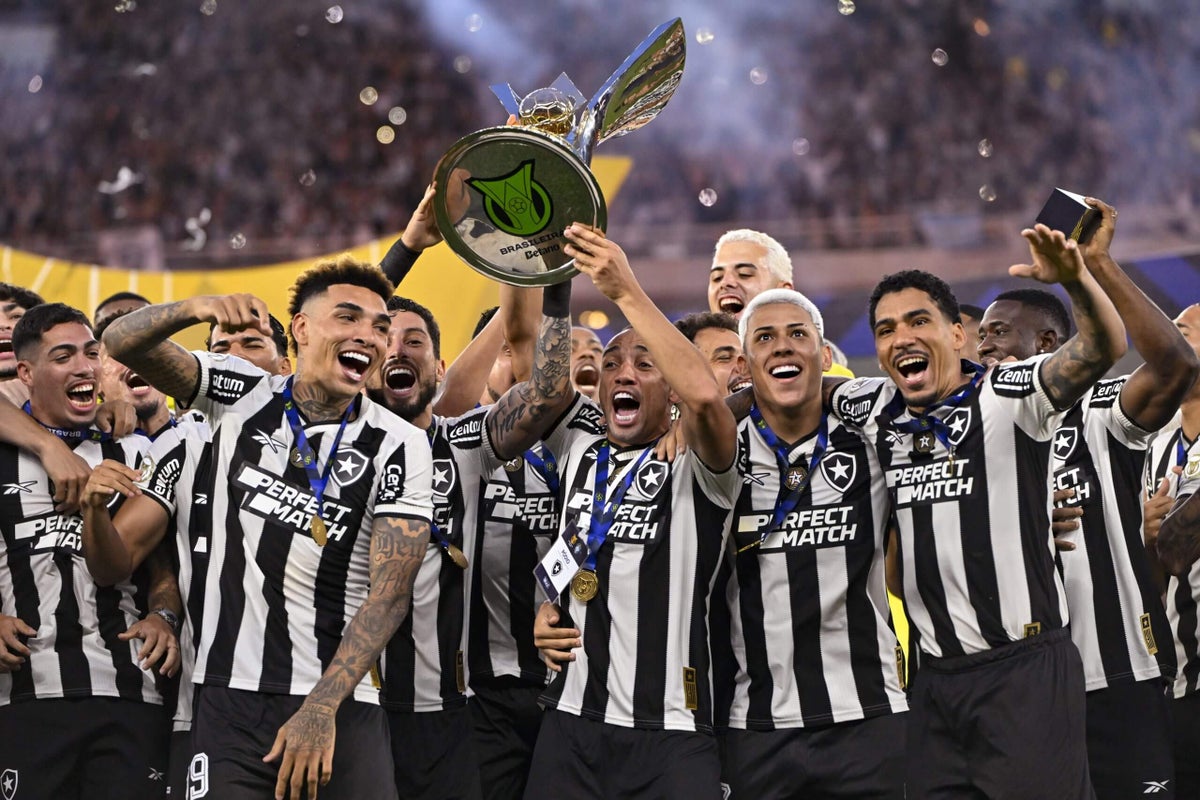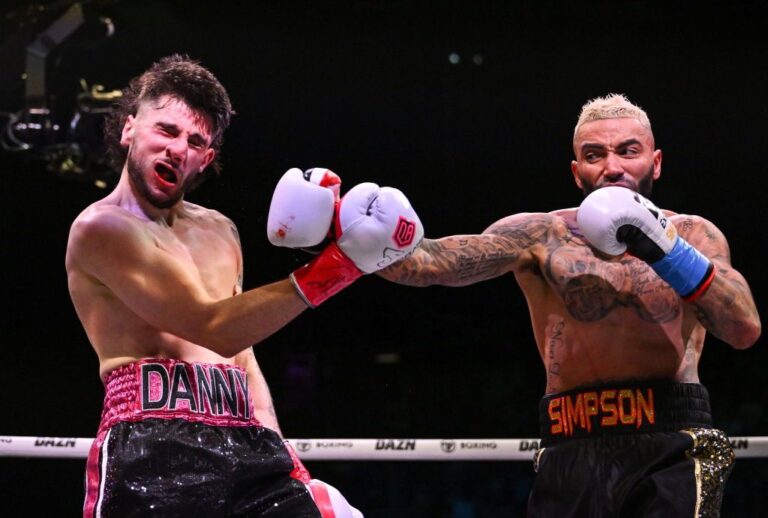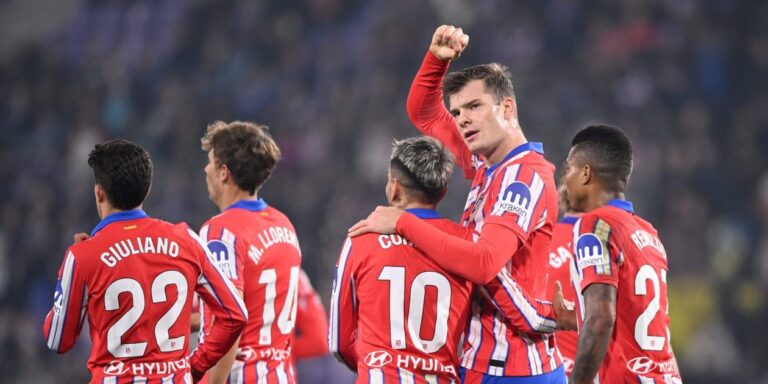
Reasons Behind Multi-Club Groups Targeting Brazilian Teams
Botafogo had an eventful week. On November 30, they secured their first Copa Libertadores title, triumphing over Brazilian rivals Atletico Mineiro with a score of 3-1 in the final. Just a week later, they clinched the Brazilian domestic title for the first time since 1995, edging out the defending champions Palmeiras.
However, there was another noteworthy aspect, albeit less celebrated amidst the recent achievements. Botafogo became the first Brazilian club to attain a significant trophy under foreign ownership, a feat made possible by relatively new regulations that could position Brazil as a prime destination for global football investors in the upcoming years.
John Textor, the American entrepreneur known for his ventures in various technology sectors and familiar to European audiences as the owner of Lyon and a minority shareholder in Crystal Palace, has been at the helm of Botafogo since 2022.
This is remarkable since such an ownership situation would have been implausible just a year earlier. “It was an opportunity to be a part of the transformation of Brazilian football and the professionalisation of it,” Textor tells eScored. “It was a legendary club — really the greatest club in the history of Brazil — that had fallen on hard times and not won anything in many, many years. It was a great growth opportunity.”

John Textor (second from left) after Botafogo won the championship (Mauro Pimentel/AFP via Getty Images)
Prior to 2021, Brazilian football clubs were primarily operated as sporting associations rather than commercial enterprises. While not entirely supporter-owned as understood in the English context, most clubs were managed by presidents elected by their fans or members. They benefitted from tax exemptions, were not profit-driven, and restricted outside investment. Although a few operated as private companies, the majority existed as sporting associations.
This model began to falter due to an extreme interpretation of the ‘not for profit’ stipulation, leading to a financial crisis in Brazilian football, with some clubs on the verge of collapse. In 2020, a report from Ernst and Young analyzed 23 Brazilian clubs and estimated a collective debt of 10.3 billion Reals—almost $2 billion, or around £1.5 billion. A considerable portion of this debt was owed to the Brazilian tax authorities, and as revenue dwindled due to the Covid-19 pandemic, reform became crucial.
As a result, laws were revised, enabling football clubs to become businesses akin to many European clubs, thereby allowing them to accept ‘external’ investments.
These new frameworks are designated as Sociedade Anônima do Futebol or ‘SAFs’ — translating as ‘football anonymous society.’ The legislative change permitted Brazilian clubs to sell up to 90 percent of their shares to essentially any party willing, a move many clubs have embraced, with more likely to follow.
Overall, of the 20 clubs participating in Serie A this past season, seven have adopted the SAF structure, although not all have undergone changes in ownership.
Alongside Textor, City Football Group acquired Bahia to its extensive global network of clubs (currently comprising 12 clubs across five continents) in 2022. In the same year, Vasco da Gama was acquired by 777 Partners (though currently they are in limbo following the collapse of Josh Wander’s group earlier this year), while former Brazilian striker Ronaldo took over Cruzeiro in 2021, later transferring ownership to businessman Pedro Lourenco last year.
Atletico Mineiro is predominantly owned by Galo Holding, a consortium of Brazilian investors. Cuiaba was established in 2001 and was owned by the Dresch family prior to their conversion, while Fortaleza transitioned to a SAF in 2023 but has yet to sell any shares, opting to adopt a German model that prevents outside parties from obtaining a majority stake.
Conversely, Red Bull’s Brazilian team, Bragantino, follows a different path; it converted into a private corporation in 2019, with control transitioning from the Chedid family to Red Bull shortly thereafter.
A number of clubs, including Flamengo, Sao Paulo, Corinthians, and Palmeiras — the largest teams in the country — are not expected to convert in the near future, as they have relatively stable finances and manageable debts, negating any immediate need for a shift.

Ronaldo, former player and owner of Cruzeiro, gestures before a match against Corinthians (Miguel Schincariol/Getty Images)
The remaining clubs are theoretically available for acquisition. This point was underscored recently when Evangelos Marinakis, owner of Nottingham Forest and Olympiacos, revealed in a Sky Sports interview that he is exploring a takeover of Vasco to expand his portfolio of clubs.
Edu resigned from his position as Arsenal sporting director in November to potentially join Marinakis’ multi-club empire and assist in its expansion globally. An official announcement regarding Edu’s role is anticipated soon; however, eScored understands he is already gathering preliminary information about Vasco in light of a prospective acquisition.
More movements are expected in the coming years. BlueCo, the ownership group of Chelsea, has commenced its multi-club expansion with the acquisition of Strasbourg in France, and they are looking beyond, as are other groups with similar ambitions. Santos, the club associated with legends Pele and Neymar, who have recently been promoted back to the top division, are considered a prime target for acquisition.
Investors are also eyeing lower-league clubs for opportunities. Guarani, currently in Serie B, is among the clubs attracting interest for investment. Even Portuguesa, which competes in the regional São Paulo leagues, has recently transitioned to an SAF.
Another lower-tier team that has adopted the SAF model is Coritiba, a former Brazilian champion in the 1980s now playing in Serie B. They exemplify the potential outcomes — for better or worse — of the trend, as they were acquired by Treecorp, a private equity firm with no prior football experience, whose existing ventures include various veterinary companies, a parking fee payment portal, and a burger chain.
“When we saw the first transactions happening, we were quite sceptical,” explains Bruno D’Ancona, Treecorp’s managing partner, to eScored. “We don’t have a tradition of companies investing in football, but now it’s a big, investable industry. Once we set aside our preconceived notions, we said let’s dive into it.
“The industry is globally booming. Fan attendance has been rising, and media rights have increased. It differs from other investments; despite the current business environment, it’s less influenced by the company’s individual scenario and more aligned with global trends.”

Marinakis is looking to invest in a Brazilian club (Michael Steele/Getty Images)
So, what makes Brazilian clubs appealing to outside investors beyond their newfound accessibility?
First and foremost, they are relatively affordable. When considering the cost of top teams in the Premier League, you’d need at least a billion. In contrast, Textor acquired Botafogo for approximately $330 million, while Ronaldo sold his 90% stake in Cruzeiro for around $117 million.
From a business perspective, it can also serve as a blank canvas for potential investors.
“Everything about Botafogo from the beginning was like a start-up,” asserts Textor. “We had very few employees. We essentially needed to establish a new company, a completely new professional staff, coaches, and players. There’s an excitement and trust that comes with a start-up. You’re not trying to win over anyone, nor convincing people to abandon their old methods. I’m an unconventional thinker, and my ideas were embraced rather than rejected. This makes starting a club distinctly different from acquiring one and attempting to produce change.”
Additionally, footballers represent a significant export for Brazil. A report by the CIES Football Observatory in May revealed that Brazil leads globally in the number of expatriate players, with 1,338 competing abroad. “It’s an industry where Brazil excels,” notes D’Ancona.
If you own a Brazilian club that can nurture young talent for the European market, the potential for revenue becomes enticing. This aspect is especially appealing to multi-club entities. In today’s ownership landscape, it may not just be about sending young footballers across borders as commodities; for instance, if Bahia develops a standout talent, Manchester City might manage his journey through their array of clubs to ease his transition to European football before bringing him into the main team.
Moreover, players can also serve as sources of income. “Instead of selling a player to clubs like Porto or Benfica, they will be integrated within the group and later sold to a major Premier League team,” describes Marcos Motta, a lawyer with expertise in advising clubs that have altered their structures. “Currently, there is no intermediary; the multi-club entity effectively fills that role.”

Edu has left Arsenal to join Marinakis’ multi-club group (Alex Burstow/Arsenal FC via Getty Images)
Furthermore, minimal bureaucracy is an attractive factor. “The ownership regulations are quite lenient,” notes Motta. “There are no financial fair play restrictions: if an investor wants to infuse $1 billion into a club, that’s permissible. Likewise, if one of his parent companies wishes to sponsor the club for $1 billion, that’s allowable as well.”
Additional revenue sources are emerging, particularly from gambling sponsorships. Of the 20 clubs in the top division for 2024, 15 featured a betting company as their primary shirt sponsor, while the remaining five — Gremio, Cuiaba, Internacional, Palmeiras, and Red Bull Bragantino — have either secondary sponsorship agreements with betting platforms or have engaged with them in recent years.
Enthusiastic and devoted fans enhance the appeal, too. “In Brazil, there exists a bond between club and community that is more profound than in many other regions,” states Textor. “Some may take offense to that statement, but it’s simply a fact.”
Textor’s success offers a blueprint for other investors regarding the viability of foreign ownership. After Botafogo’s remarkable season, many in Brazil perceive him as a symbol of the positive outcomes possible with external investment. Recently, while dining in Rio, he was approached for a selfie by a supporter of Botafogo’s rival, Vasco, who expressed a desire for similar ownership for his own club.
“There have been incredibly challenging times,” Textor admits, “but I receive thank-yous and hugs on the street. Most negative feedback is a small fraction of social media commentary and is often overstated in the press. Generally, there has been broad support from the outset.”
“It’s a movement,” D’Ancona concludes. “His strategy may differ from ours, but it yields encouraging results. There’s a collective of investors now intrigued by Textor’s accomplishments.”
This situation contrasts sharply with Textor’s contrasting reputation in Brazil compared to Europe, where he owns 45 percent of Crystal Palace, recently experienced setbacks in a bid to take over Everton, and saw his Belgian club Molenbeek relegated to the second tier last season. Most concerning, Lyon — where Textor’s Eagle Football Group acquired a 77 percent stake in 2022 — faces provisional relegation to Ligue 2 due to financial irregularities unless they enhance their financial standing by season’s end. Textor had emphasized to reporters that there was “no chance” of relegation, making his jubilation over Botafogo’s Libertadores prize money check of £23 million akin to a lottery win.
This is not a brand new realm filled with gold in football; it warrants caution and consideration of potential drawbacks. The success of one group does not guarantee success for all.
Furthermore, the future uncertainty caused by a potential breakaway league looms large. There have been calls for clubs to break from traditional frameworks similar to the formation of England‘s top clubs in 1992. While potentially lucrative, such plans remain unfulfilled, so it would be ill-advised to acquire a Brazilian club solely based on anticipated riches.
Traditionally, footy fans often resist change, though the current climate suggests a shared acknowledgment that the previous status quo was untenable, leading to minimal protests. However, a recent election for Flamengo’s club president highlighted division over transitioning to an SAF; both sides attempted to depict their adversaries as supporting the model while opposing it themselves.
Could SAFs enhance the competitiveness of the Brazilian league? Similar to global trends, prior to Botafogo’s title, a few affluent clubs dominated, with Palmeiras, Corinthians, and Flamengo together clinching eight of the nine preceding Serie A championships. However, theoretically, if teams like Botafogo secure outside investment, the competitive gap may narrow.
It might seem like a rather grim beginning, an overall decline of some of football’s most hallowed clubs. Still, this development stems from economic realities, indicating that Botafogo’s achievements under Textor could be the precursor to many future successes.
“I’d suggest taking the plunge — the waters are welcoming,” Textor states when asked if he would advise potential investors. “Join us. It will transform your life and your business. Just visit Brazil, and you’ll understand.”
(Top photo: Andre Ricardo/Eurasia Sport Images/Getty Images)









